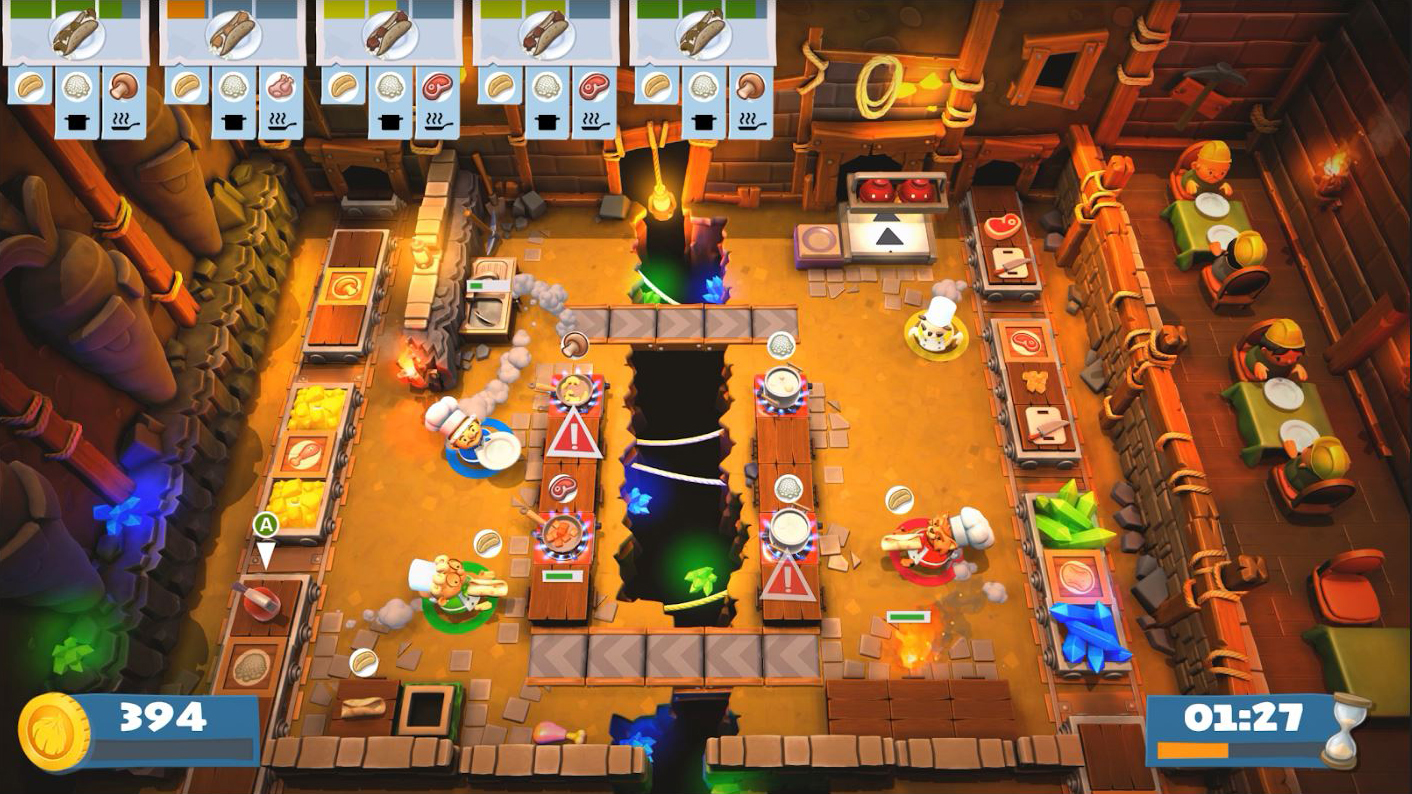Beyond the recipe: the developers trying to improve how we cook in games
Chop it like it's hot

Cooking can mean anything from cracking an egg to matching the right wine with a meal. It’s baking and barbeque, managing a kitchen, and designing dishes that look gorgeous on camera. Cooking is an art. It’s about improvisation, trying new things, making mistakes, and creating delicious food. The culinary ocean is both wide and deep - so why haven’t cooking games reflected that?
TechRadar spoke to some of the leading indie developers in the field to learn about the challenges they face in trying to serve up an authentic culinary experience, and how they're leading the charge in spicing up the cooking game genre.
Whisky business

“The actual complexity of what people do in a kitchen is overwhelming," Battle Chef Brigade developer Tom Eastman tells TechRadar. "Turning that into a fun gameplay mechanic is difficult. It’s really hard for the player to understand how well they made a dish if they’re following a real world recipe - there’s no way for them to taste it.
"It was so complicated to figure out how to make a system that made sense game-wise when everyone knows the real tools and the real foods."
Trinket Studios' Battle Chef Brigade is an anime-style action RPG which combines combo-based hunting and puzzle-based cooking in a narrative-driven adventure. It's a far cry from the cooking games we're used to seeing and a much-needed breath of fresh air for the genre.
"The actual complexity of what people do in a kitchen is overwhelming. Turning that into a fun gameplay mechanic is difficult. It’s really hard for the player to understand how well they made a dish if they’re following a real world recipe - there’s no way for them to taste it."
Tom Eastman - Trinket Studios
Cooking titles have been restricted to a few categories for as long as we can remember. They’re either fun, mini-game oriented titles where you follow a recipe like Cooking Mama or restaurant management-focused games like Diner Dash. It doesn’t help that cooking systems inside larger games, like Breath of the Wild, are usually nothing more than crafting systems. While some kooky exceptions to the rule exist - like the Japanese PlayStation game Ore no Ryomi, Sushi Striker: The Way of Sushido on Nintendo Switch, and Supreme Pizza Empire on Steam - there's still plenty of room for improvement.
“We started off with a system where you could make pretty much anything," Eastman explains. "We quickly ran into the problem where there was an infinite list of things the player could make, so we had to limit ourselves.
Get daily insight, inspiration and deals in your inbox
Sign up for breaking news, reviews, opinion, top tech deals, and more.
"It was really hard for the player to understand how well they made a dish if they were following a real world recipe. That’s where the fantasy element came in. We also needed a way to construct the cooking in an understandable and approachable way; that’s the road that led to judges scoring based off categories.”
Chop and change

The developers of Battle Chef Brigade, Overcooked, and Cook, Serve, Delicious! all agree that the lack of depth in the genre is due to how hard it is to accurately capture cooking in game form. They all know first hand as well, since they had to cut large swaths of their games due to complexity, including an actual recipe book that players could use in Overcooked and a whole food plating mini game in Battle Chef Brigade. Several of those cut segments could easily be a entire game on their own.
“A cooking game is any game that focuses on food as its primary goal, where you’re preparing or serving it first and foremost. Anything could be a cooking game,” Cook, Serve, Delicious! developer David Galindo tells TechRadar. “Plenty of games have proven that too. I didn’t think a match three puzzle could be a cooking game, but that’s part of what Battle Chef Brigade is and it's very much a cooking game.”
One surefire method that developers of games like Battle Chef Brigade use is focusing development on a singular concept. Trinket Studios wanted to capture the vibe and showmanship of a cooking competition in an action game, Galindo wanted to share the feeling of dread he experienced at his barista job and turn the feeling of being overwhelmed into anxiety-ridden fun, and Ghost Town Games focused solely on the chaos that erupts in the physical space of the kitchen.
“The nice thing with cooking as a genre is that it comes with universal appeal.”
Ollie De-Vine - Ghost Town Games
“Most cooking games focus on the minutiae, the manipulation of the items. We wanted to deal with it in the moment for Overcooked. We wanted it to be about cooperation more than anything else really,” says Phil Duncan, one of the minds behind Overcooked. “We didn’t start from a cooking angle, we wanted to make games that were good for cooperative play and we fell into cooking.”
Overcooked didn’t have to be a series about cooking - the team could’ve easily made it about cleaning, construction, or even gray boxes pushing around other, even grayer boxes in order to achieve some perfect assembly of gray boxes. They chose cooking to make their chaotic cooperative mechanics easily accessible to a wide audience, since everyone knows how to make a burger.
“Initially, we didn’t think of Overcooked as a cooking game, although the game has cooking in the name and all you do is cook,” said Ollie De-Vine, the other half of Ghost Town Games. “The nice thing with cooking as a genre is that it comes with universal appeal.”
“It hasn’t been explored as much though, there are whole waves of the cooking system that we’ve ignored,” he adds. “Experimenting with ingredients, preparation techniques, and other parts of the process are missing. The difficulty comes from where you have to gamify them.”
Penne for your thoughts

The list of cooking elements that games haven’t explored is as long as they come - since everything from table etiquette to actually growing the food in a garden can be considered part of the genre. You could fill an entire 20-hour game with the intricacies and logistics of farm-to-table or you could create a Flight Control-esque game where you plot out the paths of the wait staff through increasingly complicated restaurant floor plans. The number of possibilities is endless, and it didn’t take long for the developers we spoke to to pop off a few ideas.
Eastman talked about creating a game that is all about plating food according to different aethstetics, De-Vine and Duncan floated the idea of creating a game where you sing to plants to help them grow (dubbed PhotoSINGthesis), and Galindo said he loved the idea of a ‘Sims Cuisine’ where you manage an entire restaurant franchise. Obviously it’s easier to talk about ideas than actually create them, but it still means that there’s a wealth of ideas to explore if designers feel so inclined.
“Cooking is a well understood, but fairly complicated process. If you simplify part of that down then people can use intuition to understand how fairly complicated things work,” Eastman said. “Don’t do what we did where we approached improvisational cooking as a goal with no idea how to tackle it. Whatever you choose, you’ll need to simplify it to make it a good system for a game, focus on the mechanics and not the food itself.”
- Read more: Best indie games on PC and consoles
Aron Garst is a writer covering the game and esports industry published on ESPN, The Washington Post, The Verge, WIRED, etc
